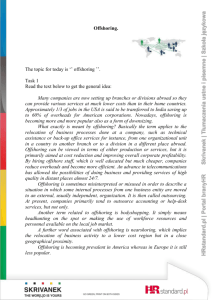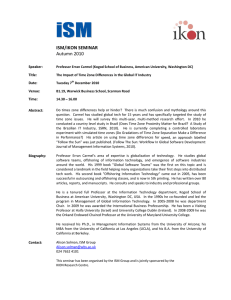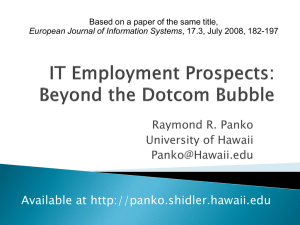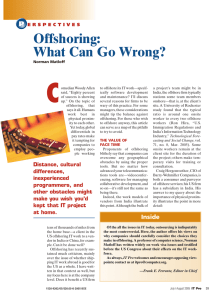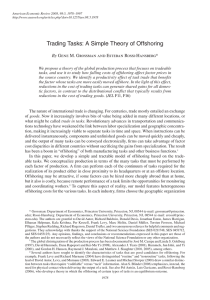Comments on “Offshoring of tasks and flexible employment: Relationships at the firm level” by E. Tomiura, B. Ito, and R. Wakasugi
advertisement
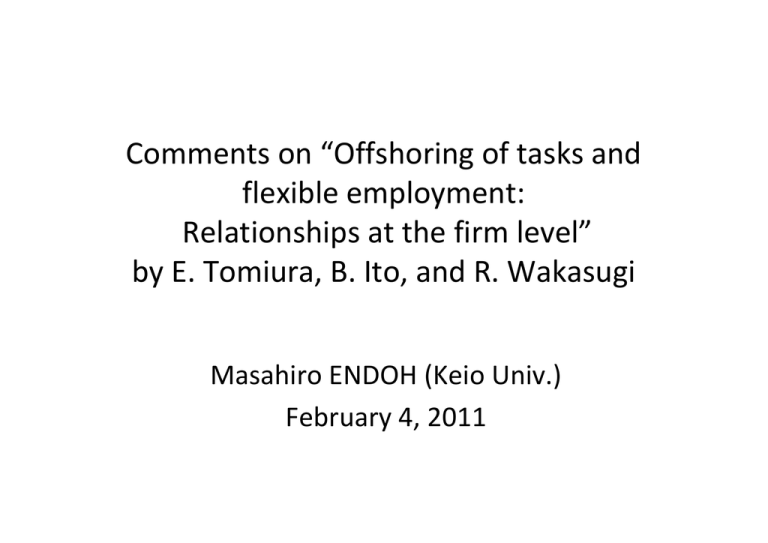
Comments on “Offshoring of tasks and flexible employment: Relationships at the firm level” by E. Tomiura, B. Ito, and R. Wakasugi Masahiro ENDOH (Keio Univ.) February 4, 2011 Aims of research • The effect of increasing global competition on labor demand – Previous papers examined the effect of import – This paper focuses on offshore sourcing • Disaggregation of offshored tasks – Production, R&D, info services, et al. • Disaggregation of labor – Regular full‐time workers and others Some features of data and analysis • Japanese firm data from authors’ original survey, combined with other official statistics • Two periods: 2000/01 and 2005/06 • Six kinds of offshore and domestic sourcing • Explanatory variable: LR / L (regular full‐time workers / total workers) • Consider the effect of policy change in 2004 (authorizing dispatched workers in production) Main results concerning offshoring • Offshoring firms decrease their LR / L by around 2% points. – The number of Japanese firms conducting offshoring increased by 5% points from 2000 to 05. ‐> It decreased Japanese LR / L by about 0.1% point. • Firms who conduct professional services offshoring decrease their LR / L by around 5% points. – Less than 1% of Japanese firms conduct this offshoring. R What makes L / L decrease? • Japanese LR / L decreasd by ‐4.979% points from 2000 to 2005 • Main factor: year dummy “After” (‐4.376) – Effect of labor market deregulation? – Change of production technology? – Change of workers’ preferences? • Offshoring has little effect on Japanese LR / L, but has a stable effect on each offshoring firm. – Offshoring potentially changes Japanese LR / L Some questions • Extension to translog functions – Factor share: wRLR or wNRLNR over value‐added – Wage data: “Basic Survey on Wage Structure” • Firm size: sales or value‐added? Sales = F (Labor, Capital, Intermediate Inputs) Value‐Added = F (Labor, Capital) • Application to other researches – Firm‐level outsourcing data is original and unique

